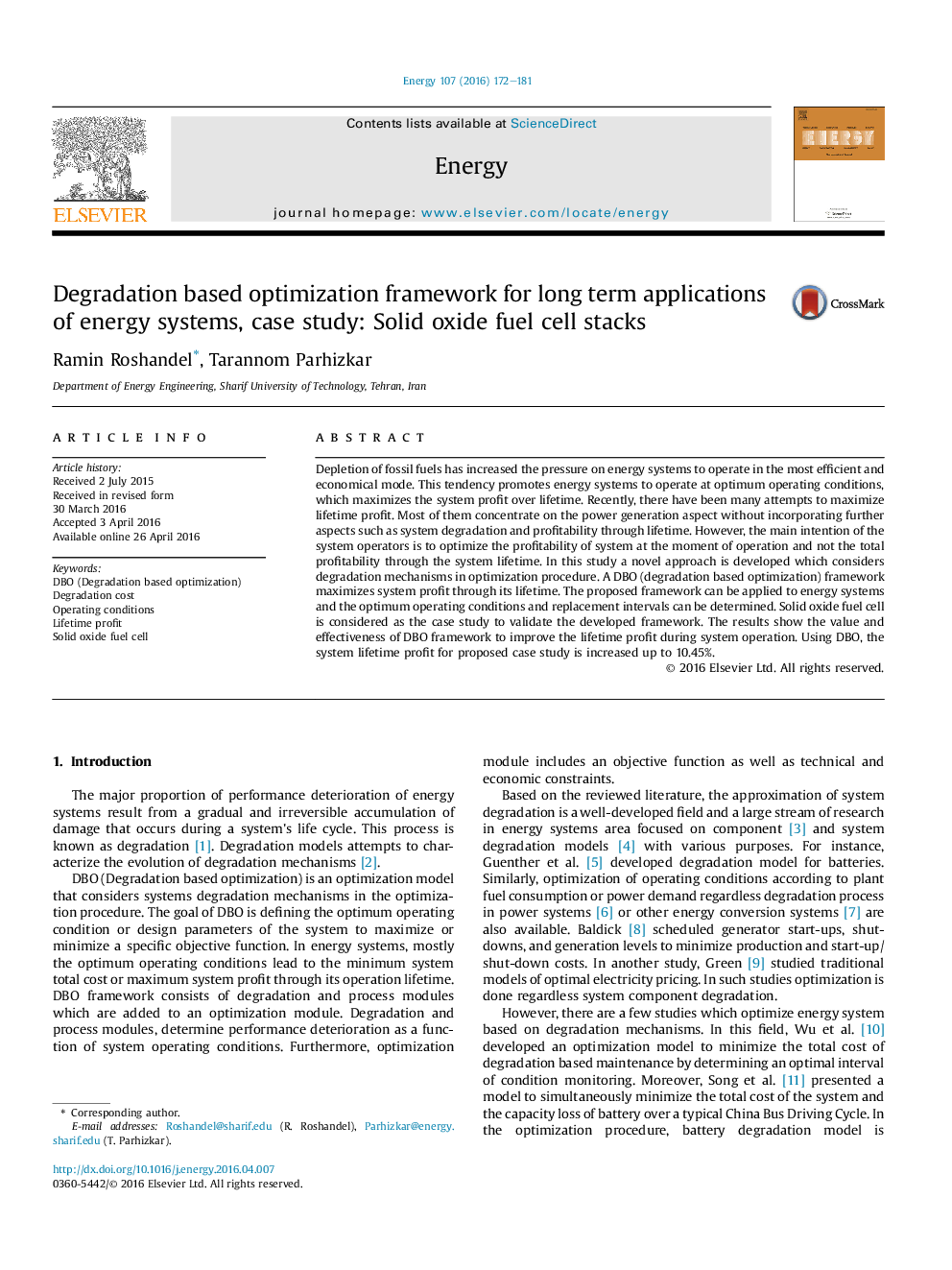| کد مقاله | کد نشریه | سال انتشار | مقاله انگلیسی | نسخه تمام متن |
|---|---|---|---|---|
| 1730829 | 1521441 | 2016 | 10 صفحه PDF | دانلود رایگان |
• Degradation mechanisms are considered in our dynamic optimization model.
• Developed framework determines system optimum operating conditions.
• Degradation cost is considered in the objective function.
• Using developed framework, the system lifetime profit is increased up to10.4%.
Depletion of fossil fuels has increased the pressure on energy systems to operate in the most efficient and economical mode. This tendency promotes energy systems to operate at optimum operating conditions, which maximizes the system profit over lifetime. Recently, there have been many attempts to maximize lifetime profit. Most of them concentrate on the power generation aspect without incorporating further aspects such as system degradation and profitability through lifetime. However, the main intention of the system operators is to optimize the profitability of system at the moment of operation and not the total profitability through the system lifetime. In this study a novel approach is developed which considers degradation mechanisms in optimization procedure. A DBO (degradation based optimization) framework maximizes system profit through its lifetime. The proposed framework can be applied to energy systems and the optimum operating conditions and replacement intervals can be determined. Solid oxide fuel cell is considered as the case study to validate the developed framework. The results show the value and effectiveness of DBO framework to improve the lifetime profit during system operation. Using DBO, the system lifetime profit for proposed case study is increased up to 10.45%.
Journal: Energy - Volume 107, 15 July 2016, Pages 172–181
